
Guru's Jazzmatazz, Vol. 1 is the debut solo studio album by American hip hop recording artist Guru, released on May 18, 1993 on Chrysalis Records. This album is one of the first albums to combine a live jazz band with hip hop production and rapping. It is the first such project to feature established rappers. Live backing is provided by a band that includes Lonnie Liston Smith, Branford Marsalis, Ronny Jordan, Donald Byrd and Roy Ayers. The album also features vocal collaborations with Carleen Anderson, N'Dea Davenport Dee C Lee and French rapper MC Solaar. The variety of guest artists adds diversity and originality to each track, and gives the album a distinct jazz feel.

Like a Rock is the thirteenth studio album by American singer-songwriter Bob Seger, released in 1986. The title track is best known for being featured in Chevrolet truck commercials throughout the 1990s and early 2000s. "Fortunate Son" is a live cover of the 1969 Creedence Clearwater Revival hit, recorded March 31, 1983 at Cobo Hall in Detroit. It was originally available only as the B-side of the "American Storm" single, and was added as a bonus track to the CD release of the album. The vinyl version ends with "Somewhere Tonight". The song "Miami" is featured in an episode of the TV series Miami Vice. This is the first studio album credited to "Bob Seger & the Silver Bullet Band" that doesn't feature the Muscle Shoals Rhythm Section replacing the Silver Bullet Band on any tracks.

Still Got the Blues is the eighth solo studio album by Northern Irish guitarist Gary Moore, released in 1990. It marked a substantial change in style for Moore, who, prior to this album, was predominantly known for rock and hard rock music with Skid Row, Thin Lizzy, G-Force, Greg Lake and during his own extensive solo career, as well as his jazz-fusion work with Colosseum II. As evidenced by its title, Still Got the Blues saw him delve into an electric blues style.
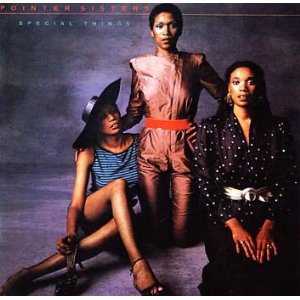
Special Things is the seventh studio album by the Pointer Sisters, released in 1980 on the Planet label.
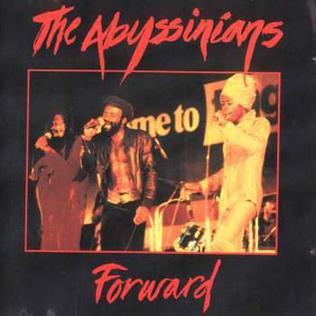
Forward is The Abyssinians' third album, released in 1982.

No Sound But a Heart was Sheena Easton's eighth studio album, released in 1987 on the EMI America label. The album's original U.S. release was canceled but some copies were found stateside. The album was issued in Canada, Mexico, Japan, and other Asian markets. The album consisted of midtempo and ballad songs. The disc features Journey's ex-front man Steve Perry on backing vocals on "Still in Love" and Eugene Wilde on "What If We Fall In Love".
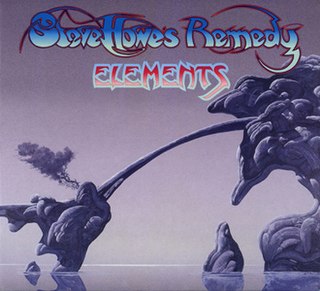
Elements is the thirteenth solo studio album by guitarist Steve Howe.

One Shot Deal is an album by Frank Zappa, posthumously released in June 2008.

Red Skies over Paradise is a 1981 album by Fischer-Z. This was the last album released under the classic line-up, despite the departure of keyboardist Steve Skolnik. This album featured many songs about politics and several references to the Cold War, the album title and cover in particular. The album received positive reviews from fans and encouraged band leader John Watts to pursue a solo career, thus ending Fischer-Z until its revival in 1987. Two of these songs were used in Deutschland 83

Reveal is an album by the new wave rock band Fischer-Z. In the summer of 1981 John Watts split up with his group, Fischer-Z, on the grounds that his art could not evolve within the context of the band. Prompted by the encouragement of the well-received Fischer-Z album, Red Skies Over Paradise, Watts soon embarked on a solo career, releasing his first solo album, One More Twist (1982), followed quickly by his second, The Iceberg Model (1983). Watts toured extensively and even produced a mini-album for Zulu artist Busi Mhlongo. He released an album entitled Quick Quick Slow under the name The Cry in 1984.
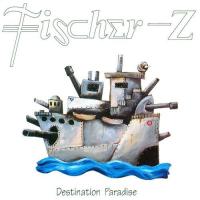
Destination Paradise was the sixth studio album by Fischer-Z. The album saw a change of record label, and another completely different line-up, still with John Watts as the original member. The album featured several lyrics of John Watt's acute observations of political events. Following the release of the album, Watts as usual, toured and promoted the album extensively, which reportedly helped to garner a new generation of fans, and Destination Paradise has been regarded as a "dynamic and cinematic" album.

Stardust is a studio album by American singer Natalie Cole, released on September 24, 1996. Cole won the Grammy Award for Best Pop Collaboration with Vocals for the song "When I Fall in Love", a duet with Nat King Cole, at the 39th Grammy Awards.
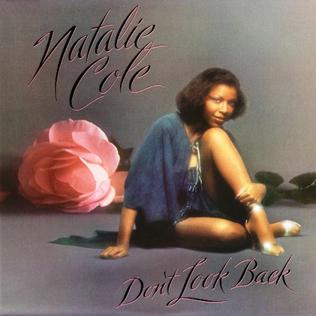
Don't Look Back is a 1980 album by American singer Natalie Cole. Released on May 15, 1980 by Capitol Records, The album reached peak positions of number 77 on the Billboard 200; number 17 on Billboard's R&B Albums chart.

Big Boss Band is the 1990 studio album of George Benson on Warner Bros. featuring the Count Basie Orchestra. This is Benson's second consecutive album which returns to his jazz roots after his successful pop career in the 1980s, and also his debut as sole producer of an album. The genre is mainly big band swing with some Michel Legrand and R&B thrown in.

Ske-Dat-De-Dat: The Spirit of Satch is a 2014 album by American musician Dr. John. Produced by Dr. John and Sarah Morrow, it was released in August 2014. It features many guest musicians, such as The Blind Boys of Alabama and Bonnie Raitt.
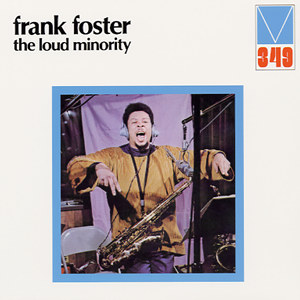
The Loud Minority is an album by American saxophonist Frank Foster recorded in 1972 for the Mainstream label.
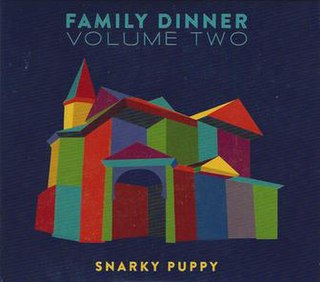
Family Dinner – Volume 2 is an album by American jazz fusion group Snarky Puppy that was released on February 12, 2016.

All Blues is an album by the GRP All-Star Big Band that won the Grammy Award for Best Large Jazz Ensemble Performance in 1996.

Waiting for the Rain is a 1985 studio album by South African jazz trumpeter Hugh Masekela. The album features a constellation of local African stars, most notably Bheki Mseleku on tenor sax and keyboards, and includes a cover of Fela Kuti's classic song "Lady". The album is dedicated to his mother, Pauline Bowers Masekela. Many tracks from this album were later included in his 2002 live album Live at the BBC.





















